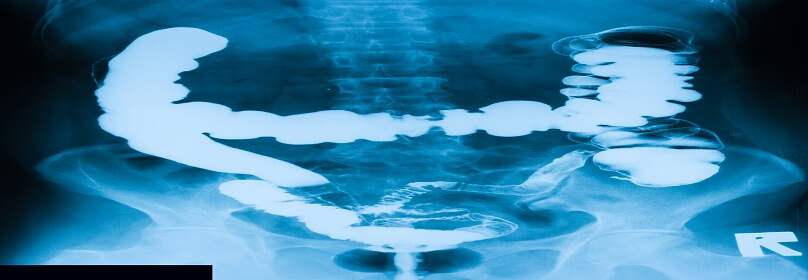Lower GI Tract Radiography

-
Lower gastrointestinal (GI) tract radiography, also called a lower GI or barium enema, is an x-ray examination of the large intestine, also known as the colon. This Examination evaluates the right or ascending colon, the transverse colon, the left or descending colon, the sigmoid colon and the rectum. The appendix and a portion of the distal small intestine may also be included.
The lower GI uses a special form of x-ray called fluoroscopy and a contrast material called barium or a water soluble iodinated contrast.
Fluoroscopy makes it possible to see internal organs in motion. When the lower gastrointestinal tract is filled with barium, the radiologist is able to view and assess the anatomy and function of the rectum, colon and sometimes part of the lower small intestine.
-
Why should I do it ?
-
A physician may order a lower GI examination to detect:
- Benign tumors (such as polyps).
- Cancer
- Ulcerative colitis (inflammatory bowel disease).
- Hirschsprung disease in children (a blockage of the large intestine).
- Images of the small bowel and colon are also used to diagnose inflammatory bowel disease, a group of disorders that includes Crohn's disease and ulcerative colitis.
-
Any preparations needed?
- You should inform your physician of any medications you are taking and if you have any allergies, especially to barium or iodinated contrast materials.
- Inform your doctor about recent illnesses or other medical conditions.
- On the day before the procedure you will likely be asked not to eat, and to drink only clear liquids like juice, tea, black coffee, cola or broth, and to avoid dairy Products. After midnight, you should not eat or drink anything.
- You may also be instructed to take a laxative (in either pill or liquid form) the night before the examination and possibly a few hours before the procedure. You can take your usual prescribed oral medications with limited amounts of water.
- You may be asked to remove some or all of your clothes
- You may also be asked to remove jewelry, removable dental appliances, eye glasses and any metal objects or clothing that might interfere with the x-ray images.
- Women should always inform their physician and x-ray technologist if there is any possibility that they are pregnant.
-
A physician may order a lower GI examination to detect: